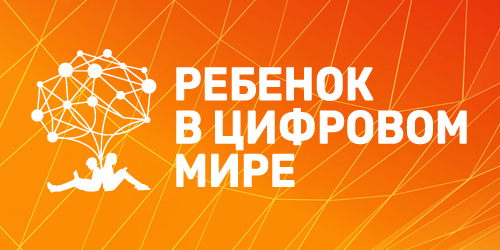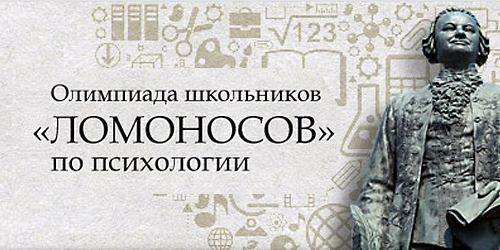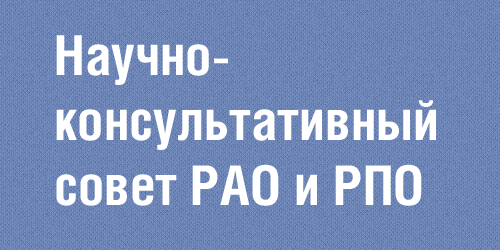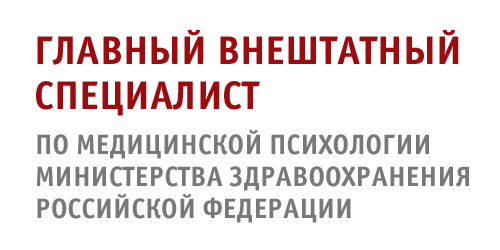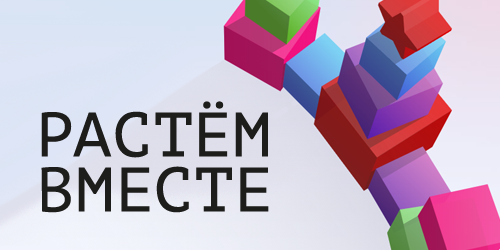Помощь детям младшего возраста в присоединении к игровому миру: микроанализ
Аннотация
Актуальность. Саморегуляция — это ключевой навык, который предопределяет успешность обучения и благоприятные возможности для карьерного роста на протяжении всей жизни человека (John, Gross, 2004, Blair, Diamond, 2008, Cole, Deater-Dechard, 2009). Игровой мир — это пространство для развития саморегуляции, которое в последнее время находится в центре внимания ряда теоретических и практических исследований (Hakkarainen et al., 2015; Fleer, Veresov, Walker, 2020; Colliver ir Veraksa, 2021). Тем не менее, сегодня педагогические стратегии игры, основанные на эмоциональной саморегуляции, которым взрослые обучают детей младшего возраста с целью присоединить их к совместной игре, все еще являются спорными. Это исследование основано на культурно-исторической теории Л.С. Выготского и рассматривает эмоциональную регуляцию как ключевой компонент коллективной игры в раннем возрасте.
Цель. Данное исследование представляет собой план исследования одного качественного кейса и микроанализ его видеозаписи, который позволяет отследить важные изменения в поведении взрослых и детей в критический момент входа в игровой мир.
Результаты позволили определить микроэтапы и стратегии, способные помочь детям младшего возраста присоединиться к игровому миру и принять в нем активное участие. Результаты исследований подчеркивают, что участие в игре (как культурной практике) является ключевой посреднической деятельностью, помогающей ребенку развить навыки эмоциональной саморегуляции. Однако детям младшего возраста необходима поддержка взрослого для организации игры, который служит моделью для развития стратегий эмоциональной саморегуляции, поскольку игры с соседскими детьми постепенно сходят на нет.
Литература
Выготский Л.С. Собрание сочинений т. 3. М.: Педагогика. 1983.
Выготский Л.С. Психология развития ребёнка.М.: ЭКСМО. 2003.
Зинченко В.П. Мысль и слово Густава Шпета. М.: Издательство РАО. 2000.
Кудрявцев В.Т. Смысл человеческого детства и психическое развитие ребёнка. М.: Издательский дом УРАО. 1997.
Флеер М., Гонсалез Р.Ф., Вересов Н. Субъективное переживание эмоций. Сингапур: Springer. 2017.
Эльконин Д.Б. Психология игры. М.: Педагогика. 1978.
Barrett, L.F. (2017). How emotions are made: The secret life of the brain. Houghton Mifflin Harcourt.
Bateson, G. (1978). Steps to an ecology of mind. New York: Ballantine Books.
Blackman, S.J. (2007). Hidden ethnography': Crossing emotional borders in qualitative accounts of young people's lives. Sociology, 41 (4), 699–716.
Blair, C., & Diamond, A. (2008). Biological processes in prevention and intervention: The promotion of self-regulation as a means of preventing school failure. Development and Psychopathology, 20 (3), 899–911.
Bodrova, E., Germeroth, C., & Leong, D.J. (2013). Play and self-regulation: Lessons from Vygotsky. American Journal of Play, 6 (1), 111–123.
Brėdikytė, M. (2011). The Zones of Proximal Development in Children’s Play. Retrieved from: http://herkules.oulu.fi/isbn9789514296147/isbn9789514296147.pdf
Brėdikytė, M., Brandišauskienė, A., & Sujetaitė-Volungevičienė, G. (2015). The dynamics of pretend play development in early childhood. Pedagogika, 118 (2), 174–187.
Burkitt, I. (2019). Emotions, social activity and neuroscience: The cultural-historical formation of emotion. New Ideas in Psychology, 54, 1–7.
Coelho, L., Torres, N., Fernandes, C., & Santos, A.J. (2017). Quality of play, social acceptance and reciprocal friendship in preschool children. European Early Childhood Education Research Journal, 25 (6), 812–823.
Cole, P.M., & K. Deater-Deckard (2009). Emotion Regulation, Risk, and Psychopathology. Journal of Child Psychology and Psychiatry, 50 (11), 1327–30.
Colliver, Y., & Veraksa, N. (2019). The aim of the game: A pedagogical tool to support young children's learning through play. Learning, Culture and Social Interaction, 21, 296–310.
Colliver, Y., & Veraksa, N. (2021). Vygotsky’s contributions to understandings of emotional development through early childhood play. Early Child Development and Care, 1–15.
Corsaro, W. (2011). The sociology of childhood (3rd ed.). Pine Forge Press: Sage.
El’konin, B.D. & Zinchenko, V.P. (2002). Razvivayuschiaya psikhologiya ili psikhologiya razvitiya [Developmental Psychology or Psychology of Development]. In: www.iu. ru/biblio/archive/elkonin%5Fpsihrazv/
Fleer, M., & Hammer, M. (2013). Emotions in imaginative situations: The valued place of fairytales for supporting emotion regulation. Mind, Culture, and Activity, 20 (3), 240–259.
Fleer, M., Hammer, M., & March, S. (2014). A Cultural-Historical Reading of the Emotional Development of Young Children. Asia-Pacific Journal of Research in Early Childhood Education, 8 (2), 47–67.
Fleer, M., Veresov, N., & Walker, S. (2017). Re-conceptualizing executive functions as social activity in children's playworlds. Learning, Culture and Social Interaction, 14, 1–11.
Fleer, M., Veresov, N., & Walker, S. (2020). Playworlds and executive functions in children: Theorising with the cultural-historical analytical lenses. Integrative Psychological and Behavioral Science, 54 (1), 124–141.
Fleer, M., Veresov, N., Harrison, L., & Walker, S. (2017). Working with teachers' pedagogical strengths: The design of executive function activities for play-based programs. Australasian Journal of Early Childhood, 42 (4), 47–55.
Gershon, P., & Pellitteri, J. (2018). Promoting emotional intelligence in preschool education: A review of programs. International Journal of Emotional Education, 10 (2), 26–41.
Ginsburg, K.R. (2007). The importance of play in promoting healthy child development and maintaining strong parent-child bonds. Paediatrics, 119 (1), 182–191.
Gray, P. (2009). Play as a foundation for hunter-gatherer social existence. American Journal of Play, 1 (4), 476–522.
Gray, P. (2011). The decline of play and the rise of psychopathology in children and adolescents. American Journal of Play, 3 (4), 443–463.
Gray, P. (2017). What exactly is play, and why is it such a powerful vehicle for learning? Topics in Language Disorders, 37 (3), 217–228.
Hakkarainen, P. (2004). Narrative learning in the fifth dimension. Outlines: Critical Social Studies, 6 (1), 5–20.
Hakkarainen, P.E., Brėdikytė, M., Brandišauskienė, A., & Sujetaitė-Volungevičienė, G. (2015). Ikimokyklinio amžiaus vaiko raida: Žaidimas ir savireguliacija. [Development in Early Childhood: Play and Self-regulation]. Kaunas: Vitae Litera. (in Lithuanian).
Hakkarainen, P., & Bredikyte, M. (2020). Playworlds and narratives as a tool of developmental early childhood education. Psychological Science and Education, 25 (4), 40–50.
Hughes, C., & Cline, T. (2015). An evaluation of the preschool PATHS curriculum on the development of preschool children. Educational Psychology in Practice, 31 (1), 73–85.
John, O.O., & Gross, J.J. (2004). Healthy and unhealthy emotion regulation: Personality processes, individual differences, and life span development. Journal of Personality, 72, 1301−1334.
Köngäs, M., Määttä, K., & Uusiautti, S. (2021). Participation in play activities in the children’s peer culture. Early Child Development and Care, 1–14.
Kozulin, A. (1998). Psychological Tools: A Sociocultural Approach to Education. Cambridge, MA: Harvard University Press.
Leont'ev, A.N. (1932). Studies in the cultural development of the child, 3: The development of voluntary attention in the child. Journal of Genetic Psychology, 37, 52–81.
Lindqvist, G. 2001. When small children play: how adults dramatize and children create meaning. Early Years, 21 (1), 6–14.
March, S., & Fleer, M. (2017). The role of imagination and anticipation in children’s emotional development (Eds.), In Perezhivanie, emotions and subjectivity (pp. 105–127). Springer, Singapore.
Mills, D., & Morton, M. (2013). Ethnography in education. Sage.
O'Brien, J., & Smith, J. (2002). Childhood transformed? Risk perceptions and the decline of free play. British Journal of Occupational Therapy, 65 (3), 123–128.
Pritchard Dodge, E., & Grimm, D. (2011). Kimochis childhood curriculum feel guide. San Rafael, CA: Plushy Feely Corporation.
Rager, K.B. (2009). I feel, therefore, I learn: The role of emotion in self‐directed learning. New Horizons in Adult Education and Human Resource Development, 23 (2), 22–33.
Repacholi, B.M., & Gopnik, A. (1997). Early reasoning about desires: evidence from 14- and 18-month-olds. Developmental psychology, 33 (1), 12.
Rivers, S.E., Tominey, S.L., O'Bryon, E.C., & Brackett, M.A. (2013). Introduction to the special issue on social and emotional learning in early education. Early Education & Development, 24 (7), 953–959.
Rothbart, M.K., Posner, M.I., & Kieras, J. (2006). Temperament, attention, and the development of self-regulation. In K. McCartney and D. Phillips (Eds.), Blackwell handbook of early childhood development (pp. 338–357). Malden: Blackwell Publishing.
Saarni, C. (1999). The development of emotional competence. New York: Guilford Press.
Schweder, S. (2020). Mastery goals, positive emotions and learning behaviour in self-directed vs. teacher-directed learning. European Journal of Psychology of Education, 35 (1), 205–223.
Shvarts, A., & Abrahamson, D. (2020). Intercorporeal dynamic functional system: a dual eyetracking study of student-tutor collaboration. C.M. Krause, L.D. Edwards (Eds.), The body in mathematics: Theoretical and methodological lenses, Leiden, The Netherlands: Brill.
Shvarts, A., & Bakker, A. (2019). The early history of the scaffolding metaphor: Bernstein, Luria, Vygotsky, and before. Mind, Culture, and Activity, 26 (1), 4–23.
Stanislavsky, C. (2001). My Life in Art (J.J. Robbins, Trans.). London: Methuen Drama.
Suvorov, A.V. (2003). Experimental Philosophy (E.V. Ilyenkov & A.I. Meshcheriakov). Journal of Russian and East European Psychology, 41 (6).
Tzuriel, D. (2018). Mother-child mediated learning experience strategies and children’s cognitive modifiability: Theoretical and research perspectives. Educational psychology-between certitudes and uncertainties, 21–38, Intech Open.
Veraksa, A.N., Almazova, O.V., Bukhalenkova, D.A., & Gavrilova, M.N. (2020). The Possibility of Using Role-Play to Train Executive Functions in Preschoolers. Cultural-Historical Psychology, 16 (1), 111–121.
Vygotsky, L. (1971). The psychology of art. Cambridge, MA: MIT Press.
Vygotsky, L.S. (1997). The Collected Works (Ed. Rieber, R.W.), Vol. 3. New York: Plenum Press.
Vygotsky, L.S. (1998). The Collected Works (Ed. Rieber, R.W.), Vol. 5. New York: Plenum Press.
Walker, S., Fleer, M., Veresov, N., & Duhn, I. (2020). Enhancing executive function through imaginary play: A promising new practice principle. Australasian Journal of Early Childhood, 45 (2), 114–126.
Whitebread, D. (2017). Free play and children's mental health. The Lancet Child & Adolescent Health, 1 (3), 167–169.
Whitebread, D., Basilio, M., Kuvalja, M., & Verma, M. (2012). The importance of play. Toy Industries of Europe, 1–55.
Wood, A.W. (2014). Practical anthropology. In Kant und die Berliner Aufklärung (pp. 458–475). De Gruyter.
Zaporozhets, A.V. (2002). Toward the question of the genesis, function, and structure of emotional processes in the child. Journal of Russian & East European Psychology, 40 (3), 45–66.
Zelazo, P.D., & Cunningham, W.A. (2007). Executive function: Mechanisms underlying emotion regulation. Handbook of emotion regulation (pp. 135–158). New York: Guilford Press
Zosh, J.N., Hopkins, E.J., Jensen, H., Liu, C., Neale, D., Hirsh-Pasek, K., Whitebread, D. (2017). Learning through play: A review of the evidence. LEGO Fonden.
Zuckerman, G. (2007). Child–adult interaction that creates a zone of proximal development. Journal of Russian and East European Psychology, 45 (3), 31–58.
Поступила: 18.06.2021
Принята к публикации: 10.07.2021
Дата публикации в журнале: 15.12.2021
Ключевые слова: раннее развитие и обучение (ECE), игра, игровой мир, участие, эмоциональная саморегуляция, сопереживание
DOI: 10.11621/vsp.2021.04.02
Доступно в on-line версии с: 15.12.2021
Суджетайте-Волунгявичене, Г. (2021). Помощь детям младшего возраста в присоединении к игровому миру: микроанализ. Вестник Московского университета. Серия 14. Психология, (4), 34-71. https://doi.org/10.11621/vsp.2021.04.02
скопировано

Это произведение доступно по лицензии Creative Commons «Attribution-NonCommercial» («Атрибуция-Некоммерчески») 4.0 Всемирная





